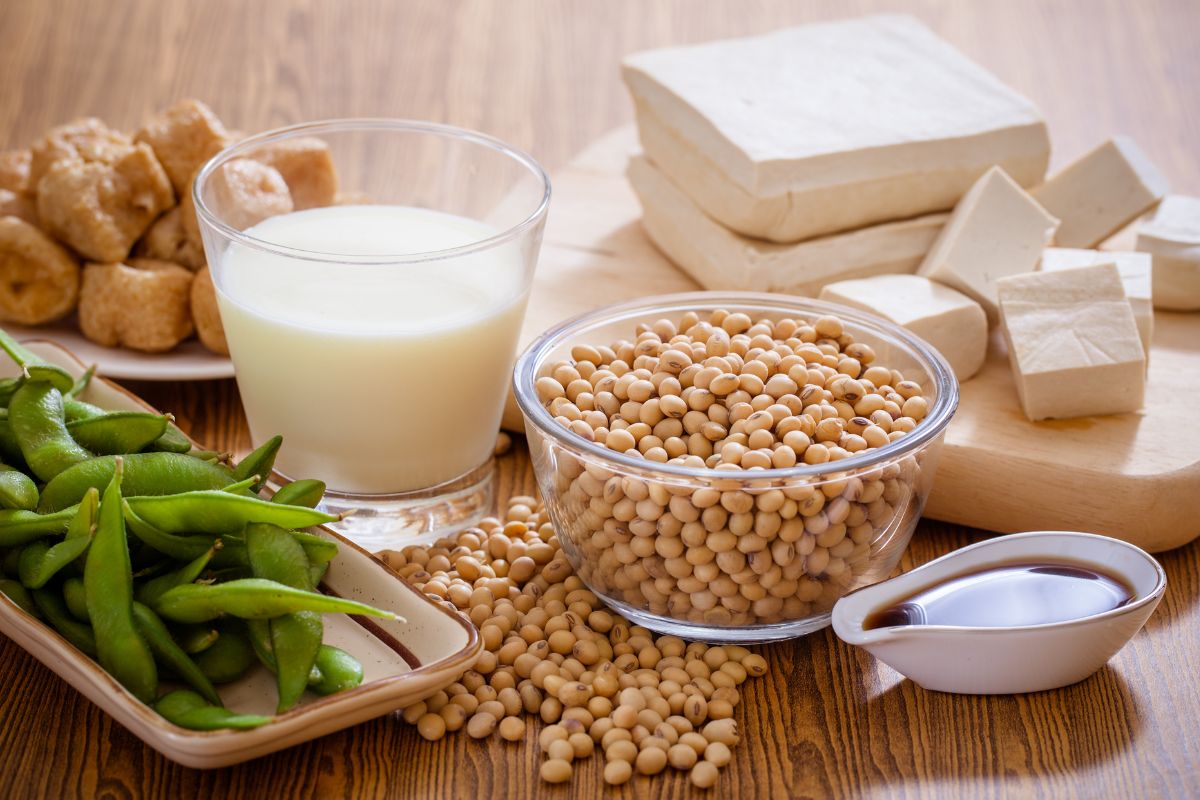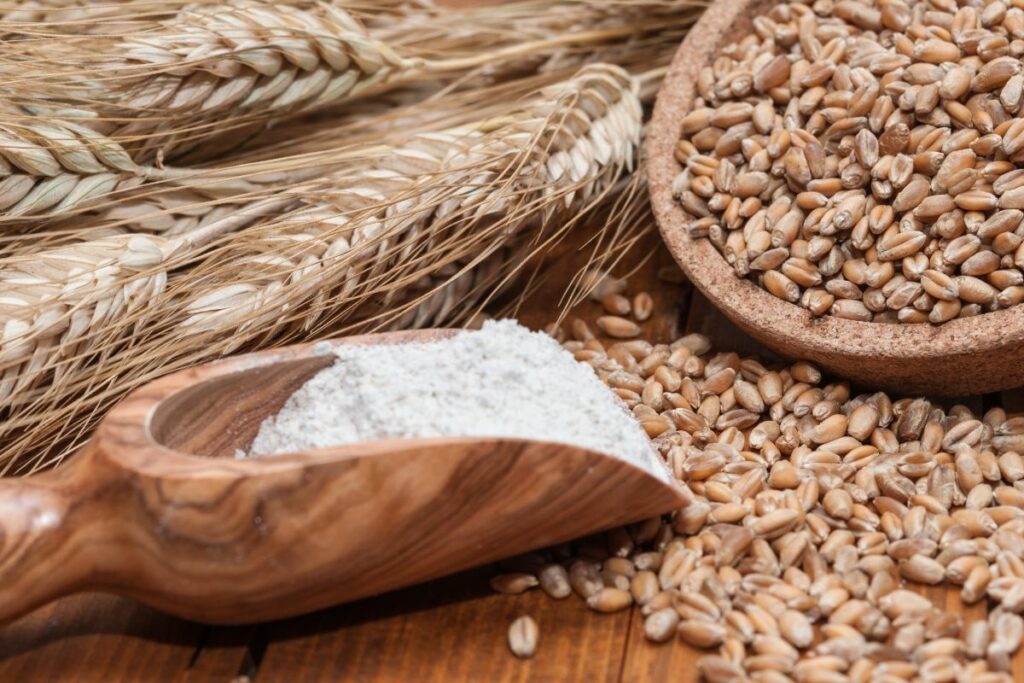Rye bread has become more and more popular, especially in the health community. You’ll now see rye options at the grocery store, appearing as not only bread, but also pasta, crackers, and other baked goods.
As rye, which is traditionally grown all over the world, makes its way into more options there have been concerns over the suitability of this substance for all individuals – particularly concerning inflammation.
Is rye bread considered to be an inflammatory food? We took a closer look at all you need to know.
What is an inflammatory?
The term ‘inflammatory’ refers to foods that cause inflammation or irritation in the body.
Inflammation is caused by substances called pro-inflammatory cytokines (PICs) – these are proteins produced by immune cells that trigger the release of chemicals such as histamines, prostaglandins, and leukotrienes, that are designed to promote healing, as well as stimulate blood vessel growth and increase blood flow.
Inflammation occurs when the body’s natural defenses are activated against foreign invaders such as bacteria, viruses, fungi, parasites, toxins, allergens, or irritants.
This process can lead to swelling, redness, heat, pain, and loss of function. It also involves the production of chemical messengers known as mediators, which are released from immune cells and act on nearby tissues to help fight infection and repair damaged tissue.
When PICs are not properly regulated, they can cause damage to healthy tissue and contribute to chronic disease.
Inflammatory foods can cause inflammation in the gut lining, leading to digestive problems such as bloating, gas, diarrhea, constipation, heartburn, indigestion, and ulcers.
Some studies suggest that consuming certain types of grains, especially gluten-containing grains, can contribute to inflammation in the body.
This means that some people who suffer from autoimmune diseases such as rheumatoid arthritis, celiac disease, and psoriasis may experience relief after eliminating these foods
Inflammatory foods: What are they?
There are many different types of inflammatory foods, but two of the most common include:
Gluten-free grains
Gluten is found in wheat, barley, and rye. It’s a protein that gives dough its elasticity and helps it rise. In recent years, research has shown that gluten may play a role in causing inflammation in the body.
Many people with inflammatory conditions like Crohn’s disease, ulcerative colitis, and dermatitis herpetiformis avoid gluten because it seems to worsen their symptoms.
However, it’s important to note that not everyone reacts the same way to gluten.
Some people don’t react at all, while others develop a rash or feel bloated. For those who do react, gluten sensitivity varies widely between individuals.
Some researchers believe that the reason why gluten causes inflammation is that it stimulates the immune system to produce more antibodies.
These antibodies then attack the intestinal wall, damaging the mucosa and allowing harmful bacteria to enter the bloodstream.
Other experts think that gluten triggers an abnormal immune response in genetically predisposed individuals.
If you’re looking to cut back on your intake of gluten, try replacing bread products with other grain products such as rice, quinoa, oats, corn, millet, buckwheat, amaranth, teff, sorghum, spelt, kamut, and wild rice, and see whether this alleviates your symptoms.
Soy products

Soybeans contain high levels of phytic acid, a compound that binds minerals in the soil and prevents them from being absorbed by plants.
Phytic acid also inhibits the absorption of iron, zinc, calcium, magnesium, copper, manganese, and iodine. Because soy contains so much phytic acid, it’s often used as a food preservative.
However, there is evidence that suggests that eating too much soy can be problematic for some people.
A study published in the Journal of Nutrition showed that women who consumed large amounts of soy had higher levels of C-reactive protein (CRP), a marker of systemic inflammation which is produced by the liver and increases during times of stress.
Other studies have linked soy consumption to an increased risk of breast cancer, prostate cancer, cardiovascular disease, obesity, diabetes, and osteoporosis.
I personally try to limit as much soy as I can as it can feel like it’s in EVERYTHING. Many food companies use it as a less-expensive filler. Staying away from shelf-stable and pre-packaged foods will help you (hopefully) eliminate soy from your diet, helping with inflammation.
Tip: If you love soy sauce, use fermented tamari or a coconut amino acid instead of regular soy sauce.
Is rye an inflammatory?
So, is rye considered to be an inflammatory? The answer to this is unfortunately yes, and this occurs as a result of the presence of gliadin, which is a storage protein present in grains like wheat, barley, and oats.
Gliadin is responsible for triggering the production of pro-inflammatory cytokines, which are proteins that help cells communicate with each other.
This communication is necessary for the body to heal itself after injury. When these cytokines are released into the bloodstream, they cause damage to the intestinal lining, leading to leaky gut syndrome.
Leaky gut syndrome is associated with many autoimmune diseases including celiac disease, rheumatoid arthritis, psoriatic arthritis, multiple sclerosis, type 1 diabetes, and Hashimoto’s thyroiditis.
In addition to gliadin, rye contains another protein called secalin, which is similar to gliadin but does not trigger the production of proinflammatory cytokines.
Secalin is thought to be less likely to cause leaky gut than gliadin. However, it still poses a threat to the intestines because it can bind to the villous surface of the small intestine, causing damage to the intestinal epithelium.
The good news is that you can reduce the amount of gliadin and secalin in your diet by choosing whole-grain rye over refined flour versions.
Whole-grain rye has been shown to lower CRP levels in patients with elevated levels of CRP. In fact, one study found that consuming whole-grain rye was just as effective at lowering CRP levels as taking a statin drug!
How to reduce inflammation
If you’re looking for ways to reduce inflammation, here are three simple steps you can take:
- Stay away from store-bought bread, cereals, pasta, and crackers. The only way to control what you eat is to make it yourself. Switching to fermented (often called sourdough bread here in the US, although your sourdough doesn’t actually have to taste sour if you don’t want it to!) homemade bread using whole ancient grains such as kumut, einkorn, farro, or spelt
- Try the AIP diet. The AIP (autoimmune protocol) diet is an elimination diet that is similar to a more strict Paleo diet. You will cut out almost everything but meat and vegetables for 30 days, then slowly introduce foods back into your diet to see what causes you inflammation
- Eat plenty of grass-fed meat, vegetables, and fruit. There is a ton of studies emerging that animal-based foods (like meat, bone broth, organ meat, eggs) are phenomenal choices. And veggies and fruit contain phytonutrients that fight inflammation
Final thoughts
Rye is a healthy food that can be part of a healthy diet, but it has been proven to cause inflammation and discomfort in some individuals.
This doesn’t mean, however, that everyone has the same reaction; it’s important find out what works for you.








